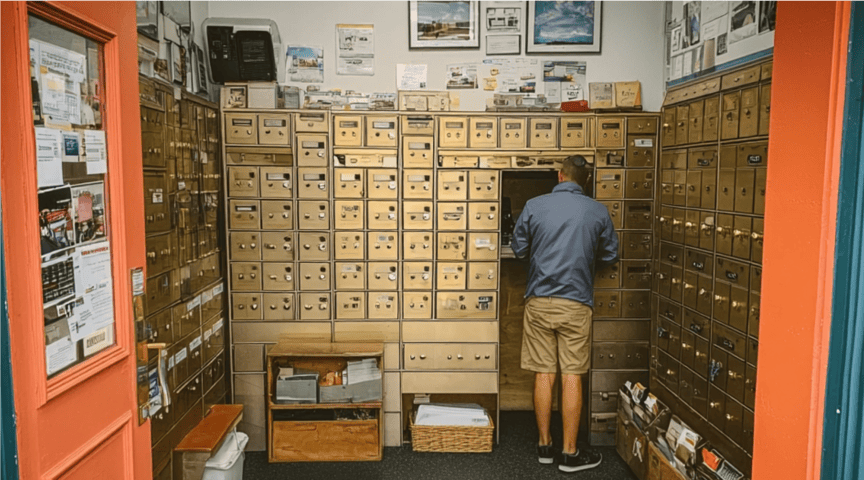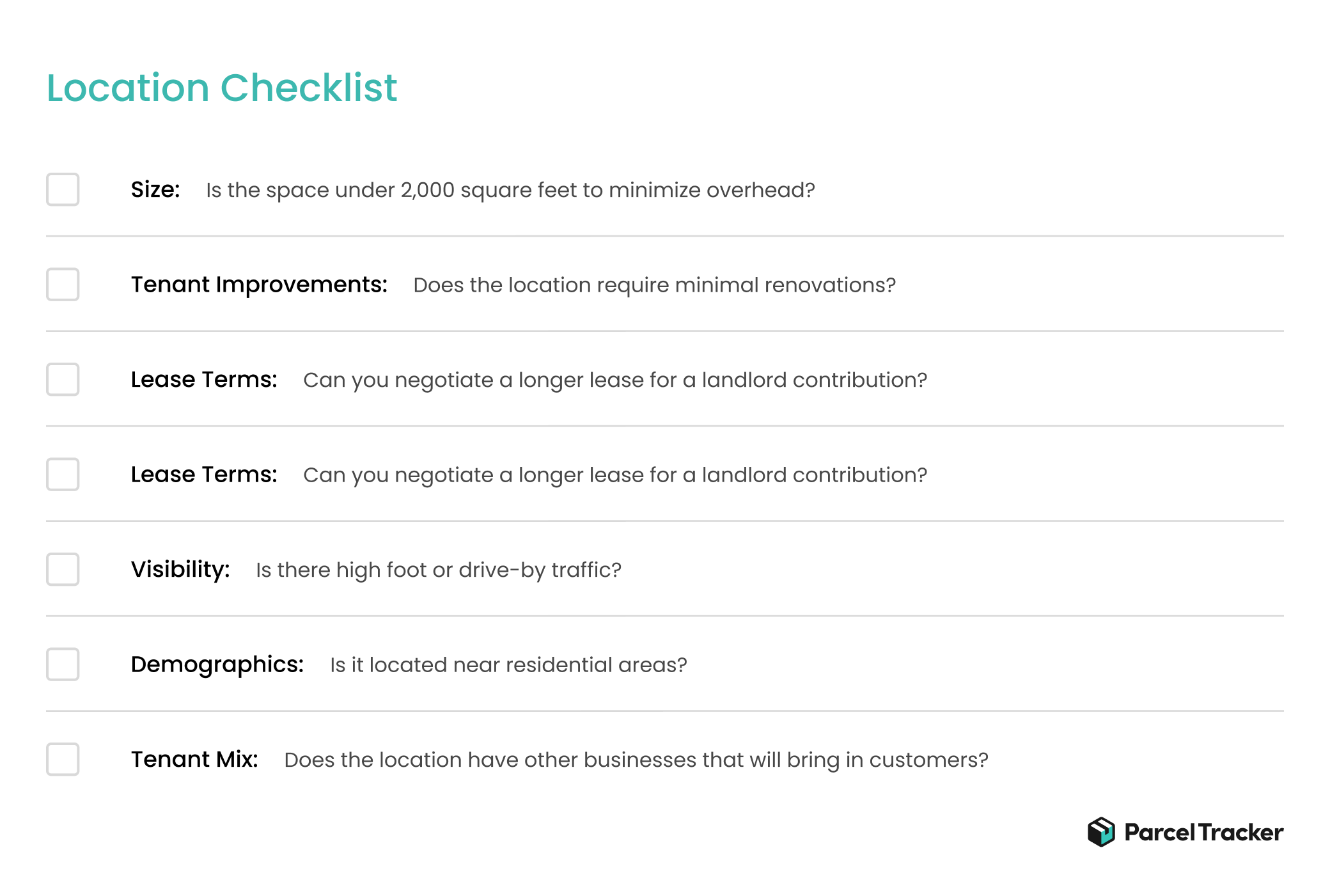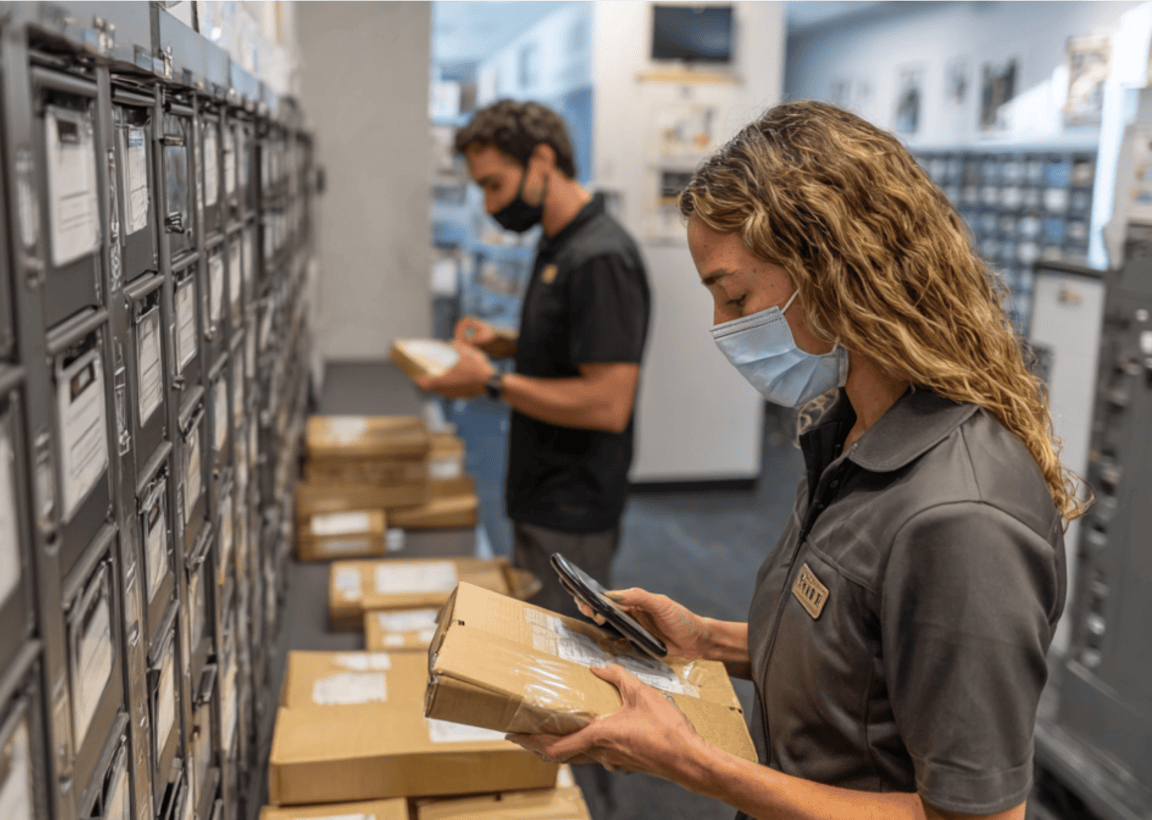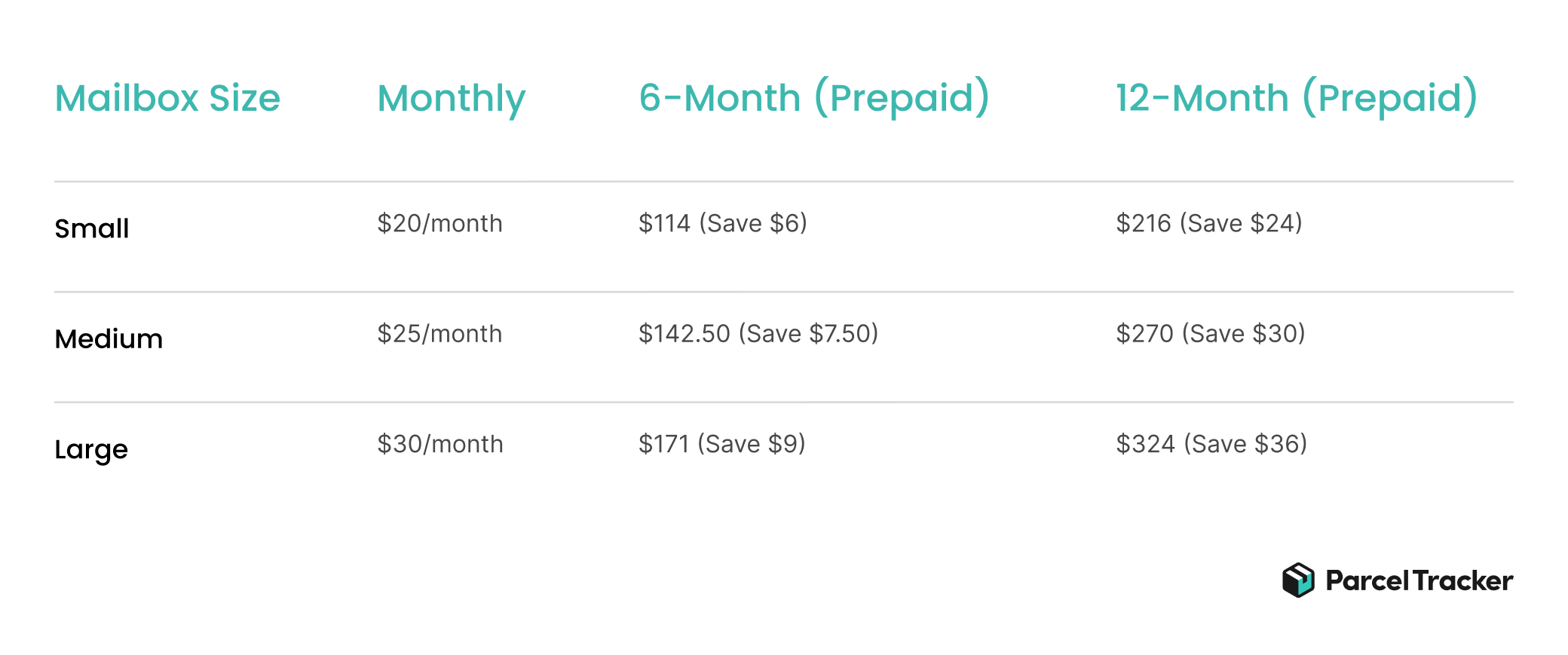How to Start a Mailbox Store: The Complete Guide to Mailroom Management and Services

Starting a business in the mailbox and mailroom management industry is a compelling business opportunity. It's a low-maintenance, low-overhead model that provides a steady, recurring income stream.
This business model is essentially a miniature real estate play. You rent out small, physical spaces, specifically the mailboxes, to customers. This generates a consistent and predictable cash flow, offering a basic service that many individuals and businesses rely on.
With the rise of e-commerce, the postal and package delivery industry is experiencing substantial growth, resulting to a more demanding mailroom management. The global courier, express, and parcel market is expected to grow at a Compound Annual Growth Rate (CAGR) of 8.5% from 2025 to 2031. This growth makes starting a mailbox store business a smart, long-term investment. This guide will provide everything you need to know to get started.
Startup Costs and Financial Planning
Starting a startup business, such as a mailbox store, can be daunting. Yet, it has its appeal because the initial investment can be significantly lower than that of a traditional retail business. Your total initial costs could range from $20,000 to $100,000, depending on your location and the method used to source materials. This investment covers your key expenses, from mailboxes to essential technology.
Your largest capital expense will be the cost of the mailboxes themselves. You have two options:
- Buying new from a manufacturer
- Purchasing used from another business
A commercial mailbox system can cost anywhere from $1,000 to over $3,000 per unit. Buying used can offer a significant cost savings. For example, a 1,000-box unit might be acquired for a fraction of the new cost.
Other key expenses include counters and interior build-out, which can be done inexpensively. Investing in professional training or consulting is also a wise decision to gain in-depth knowledge of the industry's specifics. A two-week training program might cost around $3,000 to $4,000 if you are part of a franchise system, which provides valuable support.
From a financial perspective, the combination of a modest initial investment and a consistent income stream creates a strong profitability model. The recurring revenue from mailbox rentals forms the foundation of your income. In addition to mailbox rentals, offering services like packing and shipping can substantially increase your revenue and profit margins.

Finding the Right Location
The success of your mailbox store business is heavily dependent on its location. The right space can reduce your startup costs and ensure a steady stream of customers. Choosing a location for a package room and digital mailroom requires an approach that balances visibility, size, and lease terms.
Real Estate and Lease Negotiation
Working with a commercial real estate agent is a wise investment, as they are typically paid by the landlord and have a fiduciary duty to you. They can help you find a space that requires minimal tenant improvements, saving you significant time and money. When negotiating your lease, consider asking the landlord for a contribution in exchange for a longer lease term.
Optimal Location Characteristics
The "sweet spot" for a mailroom or parcel management business is a space under 2,000 square feet. This size keeps fixed costs, such as rent and utilities, low while still providing ample space for mailboxes and services.
Look for a location with high drive-by traffic and proximity to residential neighborhoods. The ideal location is also surrounded by complementary businesses that generate steady foot traffic, such as a nail salon, coffee shop, or grocery store.
Location Checklist

Essential Equipment and Operations
Starting a successful mailbox store requires more than just a physical space. You need the right tools and systems in place. Your choice of equipment and the establishment of clear procedures will define the efficiency of your business.
Equipment and Technology
The most critical pieces of equipment you will invest in are technology-based to streamline operations. The right tools will help you manage sales, track inventory, and serve as the hub for your mailroom management tasks.
- Point of Sale (POS) System: This is the heart of your retail operations, managing all sales transactions and tracking any additional inventory you sell, such as shipping supplies or office goods.
- Mailroom Management Software: A specialized system designed to handle the inbound logistics of your service. It automates package logging, sends notifications to customers, and tracks parcel forwarding, ensuring a seamless and error-free operation.
- Commercial Scales: Essential for accurately weighing packages for shipping.
- Barcode Scanners: Used for tracking and logging all incoming mail and packages.
- Shipping and Packing Supplies: A variety of shipping boxes, tapes, and packing materials to offer a complete service to customers.

Operational Procedures
To ensure consistency and efficiency, it is crucial to develop Standard Operating Procedures (SOPs) for every task. Document the process for receiving and logging packages from carriers such as FedEx and USPS. Establish clear protocols for customer sign-ups, mail forwarding, and package notifications to ensure seamless operation.
Services Beyond Mailboxes
Mailbox rentals provide your base income. However, offering additional services is key to maximizing revenue and creating a valuable community resource. These services often require minimal additional equipment but significantly boost profitability, such as transforming a mailroom into a one-stop shop.
- Notary services
- Fingerprinting
- Passport photos
- Package shredding
- Packing and shipping
- Copying, printing, and faxing
- Mail forwarding
- Virtual office services
Legal and Regulatory Considerations
Before you open your doors, it is crucial to understand the legal and regulatory landscape of the mailroom management industry. Compliance is crucial for safeguarding your business and its customers.
Business Licenses and Permits
Registering your business is the first legal step, and the requirements vary by location.
- Business Entity Registration: You must formally register your business with your state. A common choice for small businesses is a Limited Liability Company (LLC) or a corporation.
- Federal EIN: You will need to obtain an Employer Identification Number (EIN) from the IRS website. An EIN is a unique nine-digit number used to identify your business for tax purposes and is required if you plan to hire employees.
- State and Local Licenses: Your city and county will require you to secure a general business license. These local licenses ensure your operation is legal and compliant with zoning and commercial regulations. You can research your specific local requirements on your city or county government website.
Insurance Needs
A robust insurance policy is non-negotiable for mitigating risk and protecting your assets.
- Business Owner's Policy (BOP): This is a recommended starting point for most small businesses. It combines three key coverages into one policy: general liability insurance (for customer injury or property damage on your premises), commercial property insurance (for damage to your building, equipment, and inventory), and business interruption insurance (to replace lost income if your business is forced to close temporarily).
- Professional Liability (Errors & Omissions): This type of policy protects your business from claims of negligence or mistakes in the professional services you provide. Given that a mailbox store handles sensitive mail and packages, this coverage is highly recommended.
- Fidelity Bond: A fidelity bond can protect your business from financial losses due to dishonest acts by employees, such as theft of customer property or money.
Federal and State Regulations
Operating a mailbox store means you are regulated as a Commercial Mail Receiving Agency (CMRA) by the U.S. Postal Service. This status is accompanied by strict regulations to prevent fraud and illegal activities.
- USPS Form 1583: The most critical requirement is that every customer who rents a private mailbox must fill out a USPS Form 1583. This form, which must be notarized, provides the USPS with the customer's identity and authorizes you to receive mail on their behalf. You are legally required to keep a copy of this form and a record of the customer's two forms of identification, one of which must have a photograph.
- Compliance with USPS Publication 280-A: The official guidelines for all CMRAs are detailed in USPS Publication 280-A. This publication outlines everything from how to handle accountable mail to regulations regarding mail forwarding. Strict adherence is necessary to avoid significant fines and penalties.
Team and Partnerships
Building the right team and establishing a solid legal framework are crucial for long-term success, primarily if you aim for a more passive ownership role.
Hiring an Operator or Mailroom Clerk

While it's possible to manage the store yourself, a key strategy for scalability is to hire a trustworthy and competent mailroom clerk. This individual will be your eyes and ears on the ground, handling day-to-day operations and customer interactions. When hiring, use the following guide to find the right candidate:
- Trustworthy: This person will be responsible for handling money, packages, and sensitive customer information.
- Customer-Focused: Look for strong customer service skills and a positive attitude, as they are the public face of your business.
- Detail-Oriented: An operator must be meticulous in handling mail, packages, and inventory to prevent errors.
- Problem-Solver: They should be able to think on their feet and resolve customer issues effectively and calmly.
- Tech-Savvy: The ideal candidate is comfortable with new technology, especially the POS and shipping software.
Legal Structure and Profit Sharing
A well-defined legal partnership is crucial in preventing future disputes. If you choose to bring on a partner to operate the business, draft a comprehensive operating agreement that clearly outlines each person's roles, responsibilities, and decision-making authority.
You should also include a transparent profit-sharing model. A tiered profit-sharing structure, which ties the operator's share to the business's overall profitability and performance, can be an excellent way to incentivize them to grow the business.
Pricing and Services
Developing a smart pricing strategy is a crucial step that will determine your revenue and profitability. Create a value proposition that attracts customers and encourages them to stay.
Pricing and Subscription Model
Your pricing strategy should be tiered to cater to a range of customer needs. Offer different mailbox sizes (small, medium, and large) with varying price points to serve both individuals and small businesses.
To secure long-term revenue, incentivize longer commitments by offering a discount for prepaid subscriptions of 6 months or 12 months. For example, you could offer a free month for customers who pay for a whole year upfront, which also helps improve your cash flow.
Here is a sample pricing table to illustrate a tiered subscription model from The Shipping Store.

Note: A one-time setup fee may be required, ranging from $20 to $50.
The Customer Service Philosophy
A key differentiator for your mailbox store is your approach to customer service. Unlike large franchise operations, you can build a reputation for a personalized, friendly experience. Avoid "nickel and diming" customers for minor services, such as holding a package for a few days, as this practice can erode trust. This customer-first philosophy builds genuine loyalty and turns one-time visitors into long-term, satisfied clients.
Marketing and Growth Strategy
Once your mailbox store is open and operational, your focus must shift to attracting and retaining customers. Your marketing strategy doesn't need to be expensive because the most effective tactics are often low-cost and highly targeted.
Low-Cost Local Marketing
Focus your efforts on reaching your immediate community, particularly the renters and home-based businesses who are most likely to need your services.
- Distribute Flyers and Business Cards: Place flyers on bulletin boards in apartment complexes, community centers, and local laundromats. Ask local coffee shops and diners if you can leave a stack of business cards on their counter.
- Create Local Partnerships: Partner with complementary businesses. Reach out to local real estate agents who can recommend your services to new residents, or collaborate with co-working spaces and small business incubators who serve your target audience.
- Run a Referral Program: Offer current customers a discount on their next month's rental for every new customer they refer. This incentivizes word-of-mouth marketing, which is often the most trusted form of advertising. You can also simplify referrals by sharing scannable referral cards or flyers using the Best QR code solution to guide prospects to sign-up or contact pages quickly.
Online Presence and Local SEO
A strong online presence is critical for a service-based business. Most customers will use a search engine to locate your business.
- Optimize Your Google Business Profile: This is your most important online tool. Claim and fully verify your profile to appear on Google Maps. Fill out every field, including your hours, services offered, and a link to your website. Actively encourage happy customers to leave reviews, as this not only improves your ranking but also builds trust through a brand mentions service.
- Build a Simple and Effective Website: Your website should be a straightforward and reliable resource. Use clear, concise language to explain your services, post your pricing, and include a contact form.
- Target Local Keywords: Use phrases like "mailbox rental [Your City]," "mail forwarding services [Your Neighborhood]," and "[Your City] mailbox store" in your website's titles and content. This optimization helps you rank for local searches, ensuring that potential customers in your area can easily find you.
Building Community
Your greatest marketing asset is the quality of your service. Excellent customer service turns happy clients into your best brand advocates.
- Offer a Superior Customer Experience: Greet every customer by name. Be proactive with notifications for package arrivals. Providing a personal touch helps build a strong reputation that spreads through word-of-mouth referrals.
- Get Involved Locally: Sponsor a local youth sports team to get your logo on their jerseys, or offer a special discount to members of a nearby chamber of commerce or a community center. These small acts of engagement can build significant goodwill and visibility for your mailroom management business.
- Host a Meet-and-Greet: Organize a small event for local home-based entrepreneurs in your store. It's a low-cost way to get to know your target audience and demonstrate the value of your services in a welcoming environment.
Building a Profitable Mailroom Management Business

Starting a mailbox store is a smart move into a stable and essential industry. By following a clear plan, from securing a prime location to implementing a smart pricing strategy, you can build a business that offers consistent, recurring income with a relatively low initial investment. The key to long-term success lies in your operational efficiency and a commitment to exceptional customer service.
As you prepare to launch your mailroom management business, consider how you will streamline your operations to save time and money. Tools designed specifically for this industry can simplify everything from package logging to customer notifications. A modern solution like Parcel Tracker can provide the technological backbone you need to manage your mailroom seamlessly, allowing you to focus on growing your business and serving your customers.






